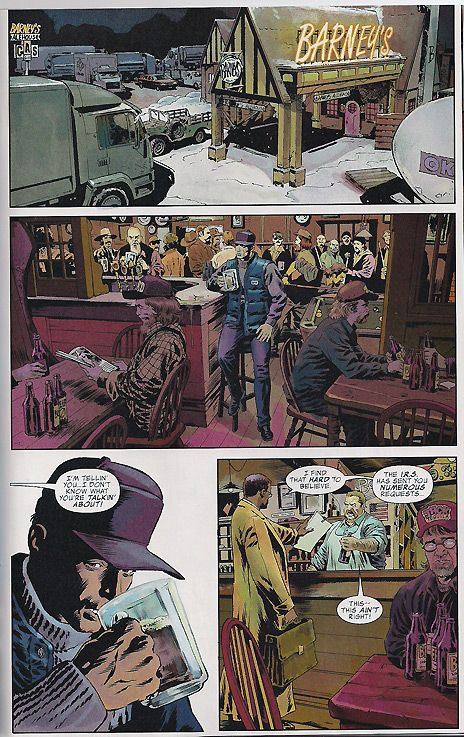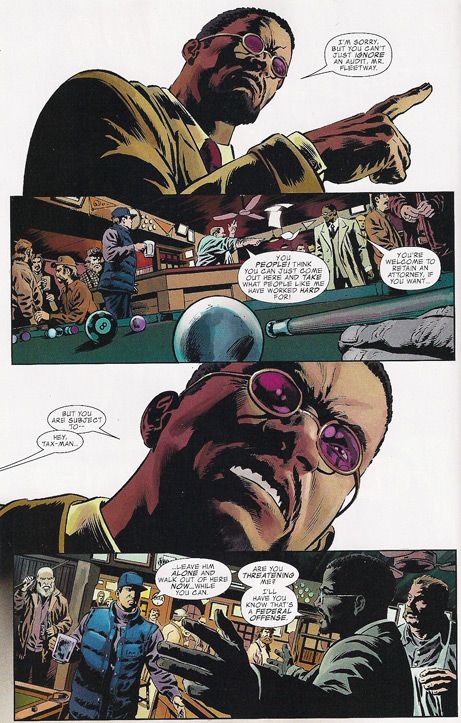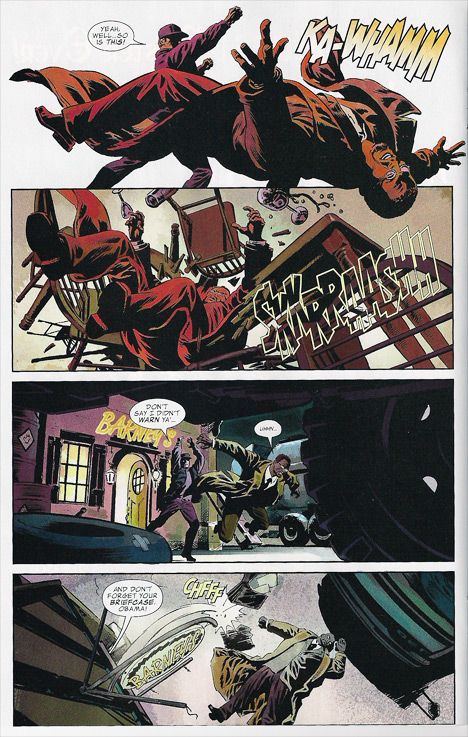Hi!
I'm Carla and I'd like to welcome you to the world of comics! I hear you've just started reading comics and blogged about what you thought of an issue fresh off the stands. You've had a very strong opinion of a character you have personally interpreted to mean something to you and your beliefs. On the Internet, this isn't that uncommon, but -- and this is the best part -- you have actually had the editor-in-chief himself comment and apologize for offending you.
I know it's been a few decades since you've read comics, but trust me: this is a high honor. A lot of fans of comics and the various characters depicted in them have done just as you have: looked into the issues of today, found things that weren't like what they remembered or took an offense to what was depicted inside, and told someone how they felt about it. But rarely do we get the personal attention you have, from both those inside and outside the medium. Message boards are full of personal viewpoints, opinions, general ideas both positive and negative, and while Marvel has done their best to answer questions, we fans mostly get a general sympathy. Without even intending to, according to your blog amendment, Joe Quesada has apologized thanks in part to your critique of the Captain America #602.
I really hope you stay with comics. It's an amazing medium that has changed with every generation, from the days you remember fondly (and descriptively, I might add) when the mightiest soldier took on Nazi forces single-handedly to the modern era. Back then, comics were used as part of the war effort to boost morale in one of our country's finest hours. As you mentioned in your blog post, Captain America wore "little red booties" and "little blue panties" (we prefer to call them "trunks" but panties works, too) as part of his star-spangled uniform to inspire American troops. Recently, the man who you recognize as Captain America, the super man who fought in World War II, has stopped being Captain America. There's a new, different man in that auspicious title, a younger man who sees the world differently than his older counterpart and wears a different uniform. The person you describe as being fearful of the Tea Party Movement isn't actually in the book, so he can't be afraid of what you're talking about.
You're right, though, that there have been more than one Captain America before; writers have told many stories about Captain America and what that character means to them. People see in those stories all sorts of metaphors and inspirations from their viewpoint or those of a different one. Like I said, you're not the first person to be disappointed in a comic book storyline before, but I think that's part of what makes the medium so wonderful. Despite words and pictures clearly printed on a page, people put their emotions and feelings into the stories that make them cultural icons. What you can only describe as a Tea Party protest, I can see as a pro-Bush rally. And while the Tea Party Movement is against big business and is anti-socialist, there are other groups in our country who feel the same way without identifying specifically with the Tea Party protesters. Comics provide the reader with materials that they interpret for themselves; this is why hard-working, down-on-his-luck Peter Parker (that's Spider-Man's real name) can feel and sound a lot like we do some days.
In your report, you note the racist intent of the group this new, younger Captain America and his partner are infiltrating. Joe Quesada explained that the protesters from one scene and the bar patrons aren't the same people. I'm going to go one further and say the people at the bar were not racist, nor does the theme of racism come up in Captain America #602.
Yes, they were angry at a black man, but please note he was pretending to be an IRS agent. No one likes to be audited, especially out of nowhere. Any hard-working American would complain about a man of any color coming to their business and demanding an audit, especially one they probably didn't deserve. The new Captain America, in order to get close to the people at the bar, tosses the "government flunkie" out, making a very clear statement against the president and taxation. Nowhere in the dialogue or in the pictures is there a racist statement. If you replaced Sam Wilson (that's the Falcon, the black character you mention in your report's real name) with a white man, then the story would be the same: an IRS agent coming to audit a business. The owner of the business is angry that he wants to audit them, not because he's black. Sam Wilson saying he won't fit in with a group of "angry white people" doesn't mean the angry white people in question are racist, it just means they are angry and white. According to the panels in the book, they are very clearly angry about political issues, not racial ones.
I'm sorry your introduction into comics wasn't a good one. There are so many stories out there, funny, silly, sad, smart, frighting and more, that it would be a shame if you labeled the entire medium on one bad experience. Please don't shut your mind to such a rare opportunity to receive an apology and retraction for your perceived slight; while I know you didn't expect it, it's a very nice gesture from well-meaning people, who, like me, don't want you to think ill of a character as rich in history and symbolism as Captain America. Captain America didn't turn his back or quake in fear of your protests, he answered them directly and made amends.
I hope you read the next issue.
~Carla





